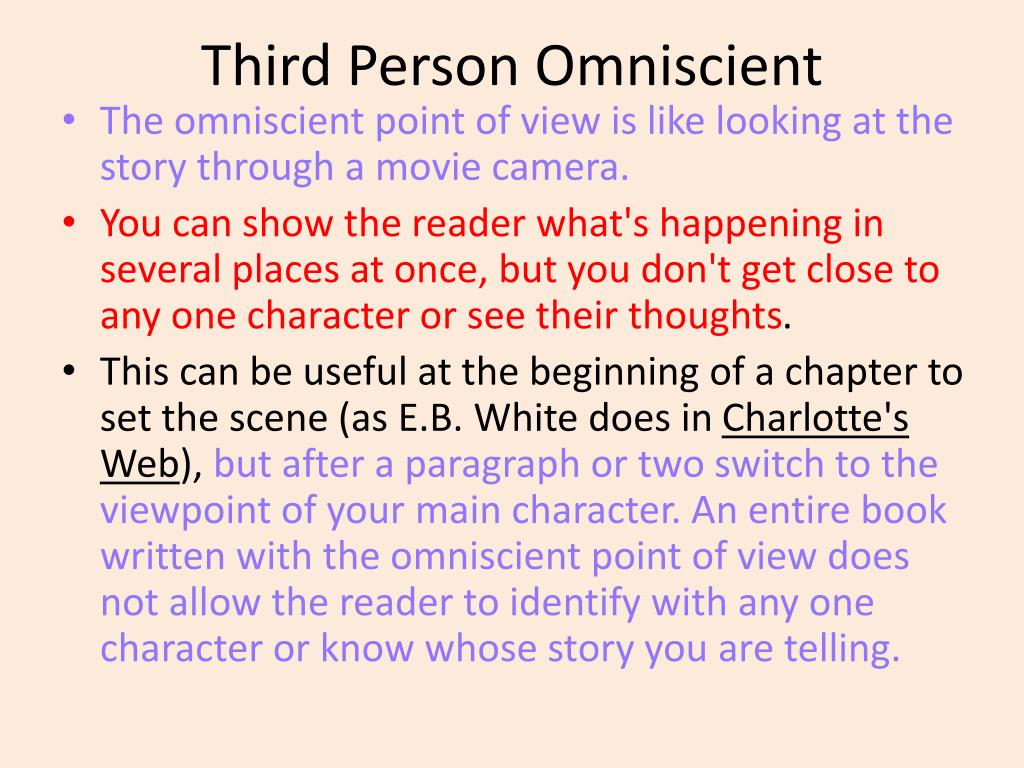Unpacking The Omniscient Definition: What It Really Means
Have you ever thought about what it means to truly know everything, absolutely everything, about a situation or even the entire universe? It's a pretty big idea, that, and it gets us thinking about some deep concepts. This kind of knowing, this total awareness, has a specific word, and it is a word we hear in many different contexts.
The idea of having infinite awareness, understanding, and insight is quite powerful, isn't it? It suggests a level of knowing that goes beyond what any person could ever grasp. We see this concept pop up in stories, in discussions about belief, and even when we talk about how a story is told, so it's almost everywhere.
So, what exactly is the omniscient definition? We're going to explore what this word truly means, where it comes from, and how it shows up in our language and thinking. It's about much more than just knowing a lot; it's about knowing *all*, you know, every single detail.
Table of Contents
- What Does Omniscient Mean?
- Where Does the Word "Omniscient" Come From?
- Omniscience in Different Contexts
- Using "Omniscient" in a Sentence
- Frequently Asked Questions About Omniscience
What Does Omniscient Mean?
The core meaning of the word "omniscient" points to having a complete and unending awareness, a full grasp of things, and deep understanding. It's about possessing total knowledge, the quality of knowing everything, basically. This idea suggests a state of mind where nothing is hidden, nothing is unknown, which is rather a lot to take in.
When we talk about something being omniscient, we are referring to a state of having unlimited knowledge or understanding. It truly means having a full or boundless grasp of everything there is. This includes all facts, all truths, and all details, past, present, and future, which is pretty astounding if you think about it.
My text tells us that "the meaning of omniscient is having infinite awareness, understanding, and insight." It also notes that "Omniscience is defined as 'the state of having total knowledge, the quality of knowing everything.'" So, it’s not just knowing a lot; it's knowing *all* there is to know, truly everything, you know?
People often search for the precise meaning of words like this, especially when they encounter them in books or philosophical discussions. The interest in such terms tends to be steady, perhaps seeing small spikes when a popular piece of media features the concept. This word, "omniscient," is one that sparks a lot of curiosity, as a matter of fact.
It's about having a full or endless knowledge, a sort of awareness that sees and comprehends everything. This kind of knowing is often thought of as something beyond human capability, something truly special. You could say it's like having the ultimate perspective, seeing all sides of every story, and understanding every single thought, which is quite something.
Where Does the Word "Omniscient" Come From?
The origin of "omniscient" is quite clear when you look at its parts. The word comes from combining two Latin roots. The first part is "omnis," which means "all." The second part is "scientia," which means "knowledge." Put them together, and you literally get "all knowledge," which is very straightforward, isn't it?
This Latin foundation gives us a strong sense of what the word conveys. It's not just a casual knowing; it's a knowing that covers everything. So, when you hear "omniscient," you can immediately picture a vast, complete understanding, thanks to its ancient roots. It’s a word that carries a lot of weight because of where it comes from, you know, its very beginnings.
Understanding the roots helps us appreciate the depth of the **omniscient definition**. It’s a word that was built to describe absolute and total knowing, not just a bit of information here and there. This etymology, you see, reinforces the idea of boundless insight, truly knowing everything there is to know, and that's a powerful concept.
Omniscience in Different Contexts
The idea of omniscience shows up in a few different areas, each with its own flavor. While the core meaning of "all-knowing" stays the same, how it applies can change quite a bit. It's used to describe grand, universal powers, and also to talk about how stories are told, which is rather interesting.
Divine Omniscience: A Higher Awareness
One of the most common places you hear the word "omniscient" is in discussions about a higher power or a divine entity. My text mentions that "this often refers to a special power of god." It's about a universal or divine being that has complete, unending awareness. This means knowing all things—past, present, and future—without any limits, which is quite a thought.
For many, this attribute signifies that a divine being possesses complete, unlimited knowledge of all things. This knowledge isn't just about facts; it includes every thought, every feeling, and every event that has ever happened or ever will happen. It’s a knowing that is total and absolute, truly boundless, you know?
This idea of divine omniscience often goes hand-in-hand with other concepts like sovereignty, meaning control over creation. For a higher power to be truly in charge of everything, whether visible or not, it would need to know everything, wouldn't it? This complete awareness is a key part of that overall picture, and it’s a very significant idea for many people.
The Omniscient Narrator in Stories
Beyond the spiritual, the **omniscient definition** also plays a big role in the world of literature. When we talk about an "omniscient narrator," we're talking about the storyteller who knows everything about the characters and the plot. This narrator can see into everyone's thoughts, know their feelings, and understand their actions, even if the characters themselves don't, which is pretty neat.
My text points out that this type of narrator "is often used to describe a narrator in literature who knows all the thoughts and actions of every character." It’s like the storyteller has a bird's-eye view of the entire fictional world, seeing all angles and understanding every secret. This perspective allows the writer to share details that no single character could ever know, you see.
For example, "The omniscient narrator provided insights into each character’s thoughts and" feelings, giving readers a full picture of the story's inner workings. This narrative style gives the reader a very broad and deep understanding of the story, making them feel like they are truly inside the world the author created. It’s a powerful way to tell a tale, that, and it really lets the reader in on everything.
An omniscient narrator isn't a character in the story; they are simply the voice telling it, but with an unlimited grasp of all events. This narrative choice can shape how a reader experiences a book, giving them a sense of complete understanding. It’s a technique that authors use to reveal complex relationships and hidden motivations, truly making the story come alive, and that's a pretty cool trick.
Using "Omniscient" in a Sentence
Knowing the **omniscient definition** is one thing; using it correctly is another. The word describes someone or something that possesses complete knowledge. It’s not a word you use every day, perhaps, but it’s very precise when you need it. Here are a few ways you might see "omniscient" in a sentence, to help you get a feel for it.
For instance, you might say: "The author used an omniscient point of view, allowing readers to know what every character was thinking." This shows how the narrator holds all the information. Or, you could hear: "Many belief systems hold that a divine being is omniscient, knowing all that has happened and all that will happen," which highlights the theological application, you know, its use in faith discussions.
Another example could be: "Her wisdom seemed almost omniscient, as she always had the perfect advice for every situation." This sentence uses "omniscient" to describe a person who *seems* to have unlimited knowledge, even if they don't literally possess it. It's a way of praising someone's deep insight, in a way, suggesting they have a vast understanding.
My text encourages us to "see examples of omniscient used in a sentence." It's about showing how this word fits into regular speech or writing. The word itself is not comparable, meaning you wouldn't say "more omniscient," as it already implies a total state. It’s either all-knowing or not, basically, there’s no in-between.
Think of it as a descriptor for absolute knowing. You might say: "The story was narrated by an omniscient voice, revealing secrets from the past and glimpses of the future." This example shows its use in storytelling. It's a powerful word that conveys a sense of ultimate knowledge, truly a complete grasp of everything, and that’s a very specific kind of knowing.
Frequently Asked Questions About Omniscience
What does it mean to be omniscient?
To be omniscient means having total and complete knowledge of everything. It's about possessing infinite awareness, understanding, and insight into all matters, past, present, and future. This means knowing every fact, every thought, and every detail, without any limits or gaps in understanding. It’s a state of knowing all there is, truly, which is quite a profound idea.
Is omniscience only for God?
While omniscience is very often linked with a divine being in many belief systems, it's not exclusively used for that purpose. In literature, for example, a narrator can be described as omniscient. This means the storyteller has complete knowledge of all characters' thoughts and actions, even though they are not a divine entity. So, its use depends on the context, you know, whether it’s about faith or fiction.
Can a human be omniscient?
In the literal sense of having absolute, unlimited knowledge of everything, a human cannot be omniscient. Our minds are simply not built for that kind of boundless knowing. However, in a metaphorical or descriptive sense, a person might be described as *seemingly* omniscient if they possess an incredibly vast amount of knowledge or insight, like a very wise teacher. It’s a way of expressing deep respect for their understanding, but not a literal claim, you know, not truly all-knowing.
To learn more about language and its many fascinating words on our site, you can explore our other articles. And if you are interested in how authors craft their stories, you might want to link to this page to understand more about literary devices, which is pretty helpful, actually.
The **omniscient definition** truly opens up a world of thought, from the grandest ideas about universal knowledge to the specific ways stories are told. It’s a word that helps us describe a very particular and powerful kind of knowing, one that captures the idea of ultimate awareness. It is a concept that continues to spark curiosity and discussion, reflecting our ongoing fascination with what it means to truly know everything, which is quite natural, isn't it?

Omniscient narrator definition - qustdig

Omniscient Narrator Definition and Examples - Poem Analysis

Omniscient Narrator Definition and Examples - Poem Analysis